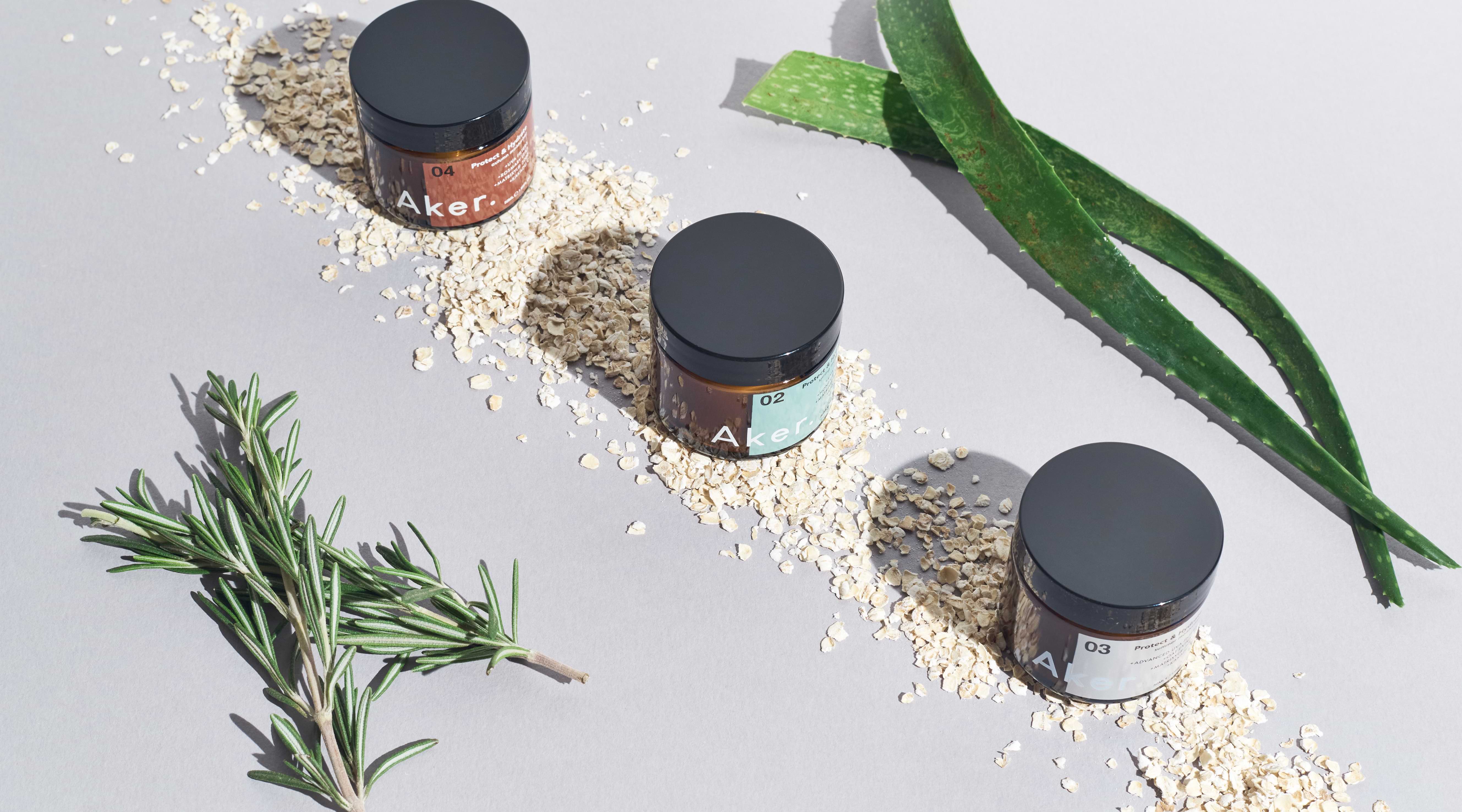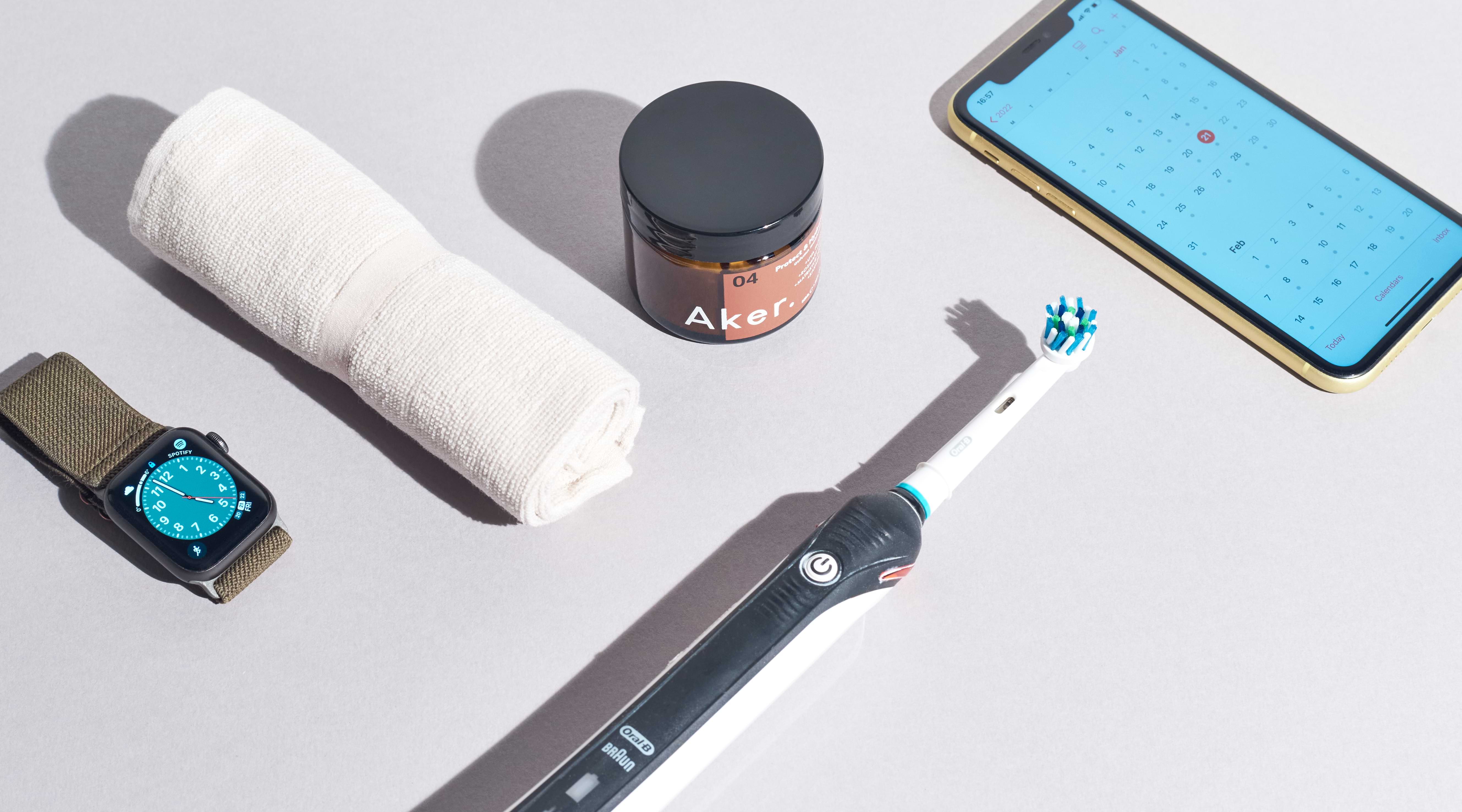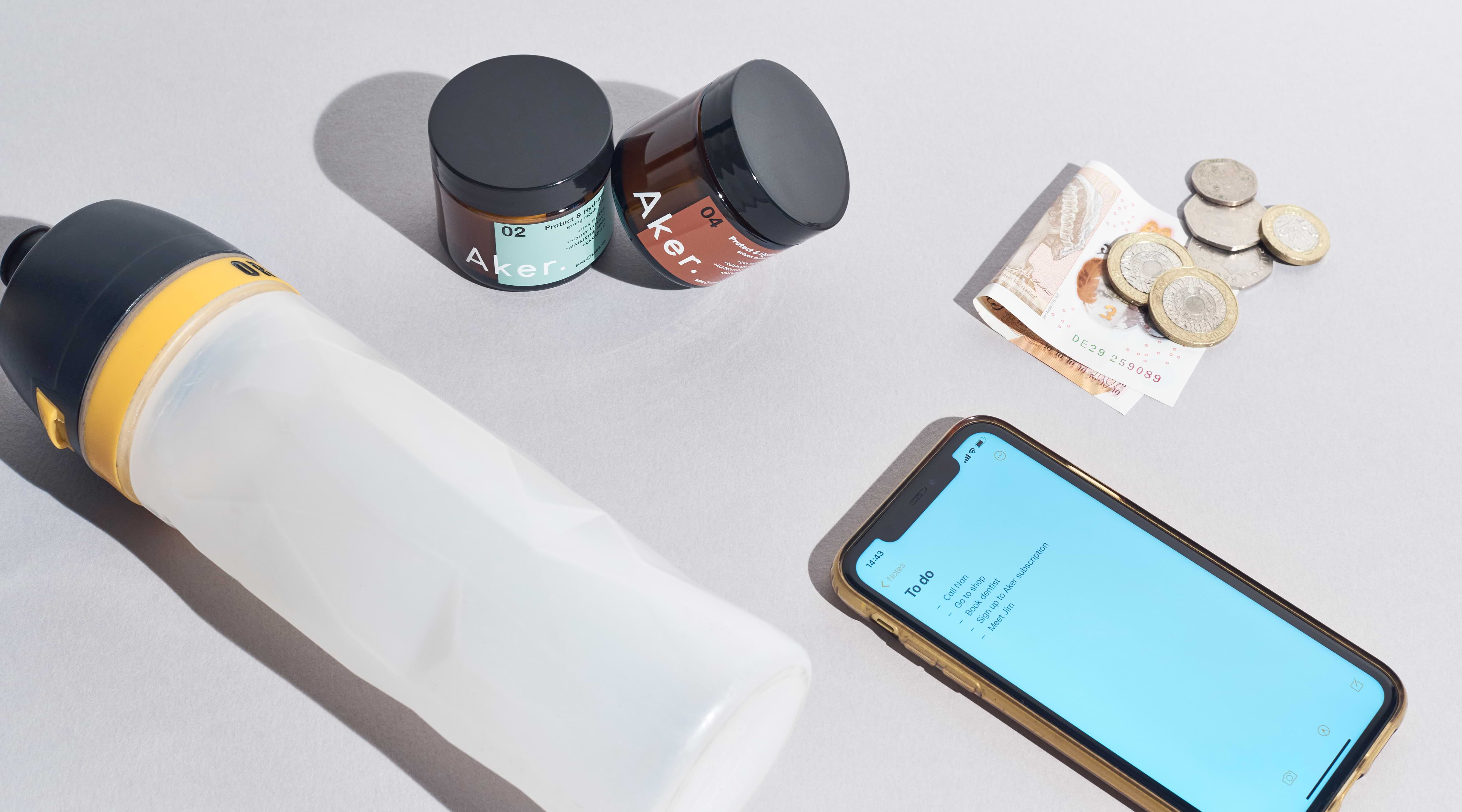Albert Einstein once said, “Look deep into nature, and then you will understand everything better”. He was right. Everything we have is due to this planet we inhabit and the nature that has flourished from it. Of all the wonders that humanity’s tenacity and curiosity have uncovered, none of it would be possible without nature lending us a helping hand.
Our reliance upon nature for existence and enjoyment is a great motivator to keep our planet as healthy as is possible. We all want the generations to come to enjoy the wonders of the world just as we have because for them to miss out on the wild around us would remove an incredible part of the human experience. Therefore, it’s our responsibility as a species to be mindful of our impact upon the environment and always strive for sustainability in our choices.
That’s why Aker is determined to do our part in creating products that are as kind to the planet as they are to your skin and to do this as effectively as possible we broke it down into three key areas of focus:
- Staying as close to our roots through the use of natural ingredients
- Paying our respects to the planet by advocating sustainability in our production
- And caring for the life our planet sustains, both human and animal.
Why are natural ingredients important?
Skincare is by no means a modern phenomenon. From the ancient’s of Greece and Egypt until the present day, people have devised ways to care for their skin and look their best for millennia.
Looking back on these magnificent ancient civilisations, it’s clear they didn’t have the luxury of high-tech development laboratories or the biochemical insights that we have access to today- all they had access to was the natural world. And so, when the ancients gifted us with writing, philosophy and farming they also laid the foundations for skincare that championed a 100% natural approach.
That’s not to say their 100% natural approach was always safe. Quite a few problems arose when the average ancient skincare routine involved smearing arsenic and lead into your skin and when teeth were genuinely brushed with a cavity-causing sugar concoction. Those days are now behind us and over the short period of the past century skincare trends have fluctuated significantly. A common theme has arisen over this period, and consumers are still caught in the battle regarding one fundamental question- are natural or synthetic ingredients ‘better’ for our skin?
Synthetic ingredients can be defined in a few different ways. Still, the Aker bottom line is that if the ingredient doesn’t have a direct natural origin (so is a combination of natural compounds or has been extracted or distilled from natural sources), it fits into the category of synthetic. Most cosmetic and skincare products are an effective recipe of both synthetic and natural ingredients that include water, emulsifiers, moisturisers, thickeners, preservatives, colours and fragrances. Choosing between potential ingredients can be a bit of a minefield. With most ingredients having natural and synthetic options, it comes down to a question of integrity that stretches far beyond ‘what works’.
Triclosan is an antibacterial used in various cosmetics. It has been shown to harm aquatic life and poses a potential risk to human health. Chalcone is a natural alternative to Triclosan that doesn’t carry such risks. Triclosan was banned by the US in 2016 yet is not actively banned within the EU, and as a result, continues to be a threat to human and environmental health. With Chalcone being an equally effective, natural alternative, why are companies choosing to disregard their ethical duties to the world around them?

This example illustrates the fact the Earth is suffering at the hands of certain human decisions. We see it as our ethical duty to consider the bigger picture to play our part in the battle against the global heating crisis. Each of us plays a small role. In choosing to use natural ingredients where we can, we can fulfil our duty to care to the planet and minimise the ecologically damaging processes that can occur in the creation of skincare products. Toxic chemicals involved in the production of ingredients (e.g. phthalates) and the ingredients themselves can contaminate our environment, damaging the earth and human health. The production process for synthetic fragrances and its effect on marine life is a classic example of this.
Active synthetic ingredients add significant value to men’s face care products and therefore absolutely have their place in skincare where there is no expense to the environment or your skin’s safety. They currently provide benefits where we have yet to discover a natural alternative, and we’re lucky to have that option for keeping our skin looking and feeling good. Synthetic ingredients that are safe, sustainable and effective make modern skincare what it is and help support the skin in ways that nature can’t.
We believe that skincare should be about achieving balance and harmony with the outside world, and there’s no better way of harmonising our skin with the elements than by using those elements. Getting closer to nature doesn’t simply equate to getting outdoors; it’s a lifestyle and mindset of respecting what the natural world provides and making the most of those assets. For us, that means embracing nature whenever, wherever we can, and reflecting that ethos through what we create. For that reason, we make sure our formulas are made up of a majority of natural ingredients and lean on modern science to provide the active properties that nature can’t. To keep an open, transparent dialogue with our customers, you can check out the ingredients in all our products on our forulas blog.
Keeping our products as natural as possible whilst maintaining the highest quality and choosing synthetic ingredients that are both safe and genuinely work was a massive priority for us, and paying our respects to nature through using as many of her raw ingredients as we can is the best way of paying homage to the natural world around us. Our products are focused on balancing out any effects the seasons and world at large may spring upon your skin, so you can go about your life safe in the knowledge that your skin will always be protected long term.
What is sustainable skincare?
Unifying our skincare regime with our world is not just about what goes into the box, but also the box itself. In December 2018 the UK’s Royal Statistical Society declared its statistic of the year. This statistic took into account the past 60 years of plastic mass production - around 8.3 billion metric tons - and concluded that only 9% of all plastic ever made is likely to have been recycled.
Now, take a moment to consider the presence of plastic in your daily life. This material is almost impossible to escape from the wrapper on your food to the frame of your sunglasses. There’s nothing wrong with plastic - it’s versatile, economical to produce and easy to access - but when we factor in that half of all plastic produced is discarded within a year, and that each of those pieces takes roughly 400 years to degrade, we can start to see the environmental issue that our fondness for plastic leads to.
Awareness of social responsibilities is a growing movement, and a large part of that awareness involves considering each individual’s impact upon the planet. Social responsibility applies to businesses and organisations just as it applies to individuals, and for those supplying consumers with products, addressing unsustainable packaging methods and materials is as good a place as any to start.

Sustainable packaging is a part of creating a global circular economy. This is a system where resources are kept in a cycle of use for as long as possible, eliminating unnecessary waste. To facilitate the shift toward sustainability, packaging should be considered across three main areas:
-
The materials used
Are the materials raw, recycled or reused? What methods are used to obtain and prepare the materials for use? -
The production process
What production methods are used? How long is the production chain? How large is the carbon footprint? -
The ability to recycle or reuse the finished product
Can the product be recycled? Can it be easily recycled, meaning consumers don’t have to search tirelessly for specialised recycling centres and instead be a part of their local authority’s recycling scheme?
Can the product be reused? How many times can it be reused, and for how many different purposes?
When it comes to recycling the world has started to pull up its socks and is starting to make significant advancements. Items that previously had no hope of being recycled can now have elevated lifelines as science discovers new ways to transform them. That said, ability and accessibility are two very separate things. When creating recyclable materials, we also have to consider that recycling protocol varies between local areas and authorities, so not everyone has equal access to facilities.
Furthermore, sustainability goes a lot deeper than recyclability. Eco-friendly and recyclable products may be wholly unsustainable, an example of this being plant-based packaging - on the surface it's a brilliant idea, but looking a little deeper this method can often involve deforestation and some hefty carbon emissions.
So as you can see, when exploring sustainability options, it’s a lot more complicated than it may first appear. There are the materials, how those materials are sourced and turned into products, the viability to dispose of them sustainably, and then added to that companies’ abilities to be economical and realistic throughout the entire supply chain. When we focused on making sure our products were sustainable, we had to consider the whole supply chain that sets both our product and its packaging before you.
We want to reduce our impact on the environment as much as possible and decided to use glass as the main material for our jars. Whilst glass can be heavier to transport (resulting in a higher carbon footprint when thinking about larger quantities), it is currently much more straightforward to recycle than plastic in terms of the current infrastructure and the ease for our consumers to access this. The only plastic we use is the lid of our jars, and we consciously decided to use PP plastic due to it being one of the seven widely recycled types of plastic. With regards to our outer and postage packaging, we use sustainably supplied craft stock cardboard, recycled papers and avoid plastic entirely.
As you can hopefully see thus far, kindness to the planet is at the forefront of our minds. When we develop our products, we make sure the end result is an effective, natural, sustainable skincare range that will play a part in keeping the bountiful - yet fragile - wonders of the world around us flourishing for the centuries to come.
Cruelty-free men’s skincare
It’s fair to say that we disagree with the whole ‘you have to be cruel to be kind’ approach to things, and in our pursuit of kindness to the life our planet sustains cruelty is by no means something that plays a part! It would be hypocritical of us to create products for men determined to be kind to your skin but express cruelty in its production.
Since March 2013 it has been illegal to sell any cosmetic products tested, or containing ingredients tested, on animals within the EU (these laws are being upheld in the UK following on from Brexit). Despite research showing that animal testing has frequently resulted in flawed conclusions, with 50%-99.7% of experiments failing to predict real human outcomes, the practise of animal testing is still legal all over the world. Some countries even legally require animal testing still. As a study into the practice discovered;
“The claim that animal experimentation is essential to medical development is not supported by proper, scientific evidence but by opinion and anecdote. Systematic reviews of its effectiveness don’t support the claims made on its behalf”
These archaic practices cause unnecessary pain and suffering to various animal species for little to no reward.
There are now various alternatives to animal testing such as computer models, cell and tissue cultures, and alternative organisms, all of which provide more cost-effective and less time-consuming results with greater scientific credibility. Despite all this, some companies continue to use animal testing; UK Government figures for 2019 reported that 3.4 million experiments using animals (either for experimentation or involving genetic modification) were conducted.
You may be shocked to hear these practices continue, and whilst many don’t relate to the cosmetics industry, certain ones still do. We were certainly shocked. Even unwittingly, some cosmetic companies continue to condone these brutal practices. To protect the animal kingdom and our conscience, we’ve made sure to check every link in our supply chain complies with cruelty-free regulations. This means no animal testing or animal harming at any stage, and an ongoing commitment to ensure that these practices are on their way to becoming a footnote of history.
The term sustainability is applied to many different areas, but it boils down to 4 distinct areas: human sustainability, social sustainability, economic sustainability, and environmental sustainability. These four pillars provide a foundation for preserving human life and development, but our global production and consumption are not sustainable at the current rates.
As with any social movement, the smallest actions can have the most significant impact. Each individual’s choices combine to form a great wave and bit by bit; the tide turns in the direction of change. That’s why every decision we make as to what goes in our products, how our products are packaged, and the testing procedures we undertake are a conscious step towards sustainability.
Our goal is that each of our products leaves you with more than just protected skin that feels fantastic; you’re also left with a clear conscience and a sense of harmony with the natural world, because why not help preserve nature whilst protecting your skin?
We always love to hear from you about your experiences with our products and your thoughts on sustainability, so feel free to chat with us at contact@akerskincare.com.



Comment
Fantastic writeup. Makes me even more happy to be using Aker every morning. The product already feels (and smells) great. But even better to get all the detailed thoughts that went into making it.